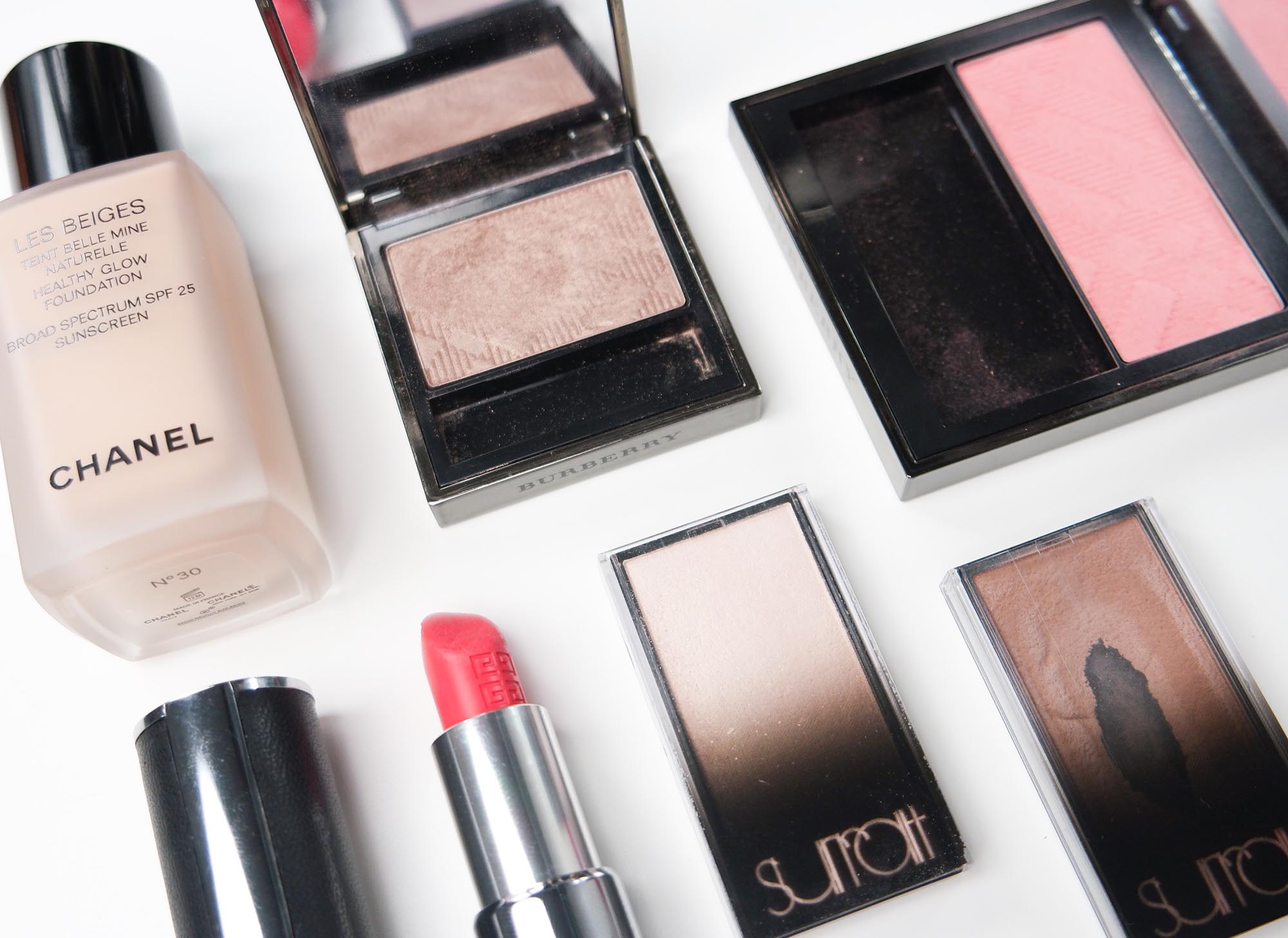
Real Talk: Beauty Gurus Should Not Be Playing Doctor
Let me qualify that title a little bit: beauty gurus, feel free to play doctor with a consenting adult partner all you want. But let’s leave the medical advice to the real professionals, shall we? For those of you who’re wondering what prompted this, I’ll fill you in. Today is the launch of Tati Westbrook’s (GlamLifeGuru) new ‘beauty line’, Halo Beauty, which as of now consists of one product: a $40 bottle of vitamins.
What?
Ok, as someone who writes about beauty myself, I understand that some amount of discussion on overall health & how it affects your skin and hair is unavoidable. After all, they’re part of your body and there’s lots of research on different medications, supplements, etc and how they can be used to improve hair & skin health. It’s one thing to share the science and your own personal experiences with medications & supplements, such as the DAO enzyme supplement that is great for overall health.
So here’s the problem – in the US, vitamins and supplements aren’t regulated by the FDA. That basically means any jerk can put snake oil in a pill, sell it to people and rake in the cash. As long as it isn’t doesn’t cause adverse effects or run afoul of drug labeling standards, you’re pretty much in the clear. I personally find that absolutely mind-boggling, but that’s a whole other tangent. The point is, you don’t have to have any kind of education, training, or background in medicine, biochemistry, pharmacy, nothing.
But vitamins and supplements are generally safe, right? Eh, it depends. And therein lies my problem with beauty gurus (or any random person on the internet, for that matter) giving advice on supplements and medications, that is why you should get them from safe places, go deal now to buy them. Most are probably find for most people, but they might also be a huge no-no based on certain health conditions. Halo Beauty posted a photo of the back of the vitamin bottle on their instagram page (which I’m not linking to because I refuse to drive traffic there), so let’s take a look at the ingredients. I transcribed these from the photo, so please let me know if you catch any misspellings. I also went ahead and linked any contraindications/warnings that turned up from a quick google search:
- Vitamin C, 60mg
- Vitamin D3, 1000IU
- Vitamin B1 (as Thiamine), 5mg
- Vitamin B2 (Riboflavin), 5mg
- Vitamin B6 (as pyridoxine HCl), 2mg
- Biotin, 3000mg
- Zinc (as zinc methionine), 10mg
- Copper (as copper gluconate), 1mg
- Manganese (as manganese gluconate), 2mg
- Catalase, 2500 IU
- Rosehip powder extract (4:1), 100mg
- Methylsulfonylmethane (MSM), 160mg
- Saw Palmetto (45% beta sterols), 160mg
- Emblica Officinalis (Amla) (45% tannins), 200mg
- Grape Seed Extract (85% polyphenols), 60mg
- Pumpkin Seed 10:1 Extract Powder (Curcubita pepo), 80mg
- Ceramide RX (TM) Phytoceramides (Rice Extract), 40mg
- Horsetail Equisetum arvense, 20mg
- Astaxanthin, 4mg
- L-Glutathione, 10mg
- Alpha Lipoic Acid, 30mg
- Other ingredients: Microcrystalline cellulose, vegetable capsule (hydropropl methylcellulose), silicon dioxide, vegetable magnesium stearate
Did you click through those and check here? I did, obviously, and found out I should definitely ask my doctor if were hypothetically going to use the product. Several of the ingredients are contraindicated for thyroid disorders & asthma, or could interfere with bloodwork. Others could increase the side effects of prescription medications I take. Of course, that’s a sample size of one, so what’s out for me might be just fine (or even helpful) for someone else. Which is exactly my point – each person needs to work with their own medical professionals to determine that, and it’s irresponsible to peddle them as ‘beauty pills’.
I want to talk a little bit about the mystery trademarked ingredient in there too – Ceramide-RX. Ceramides are a pretty popular ingredient in topical skincare for improving barrier function. I haven’t done a ton of research into whether taking them orally is effective, though a quick scan through PubMed articles seems like they might be. No, the part I’m interested in is the trademark-holder: Inside Out Beauty Labs, LLC. According to a California Business Search, the LLC is registered to James & Tatiana Westbrook. Hmmmm. Maybe there’s some financial benefit to holding the trademark for an ingredient under a different business name. The cynic in me feels like it’s a ploy make people think the vitamin was formulated by someone with actual expertise, and/or they want to differentiate it from the gazillion other hair/skin/nails vitamins on the market (which seems more likely). Either way, I’m skeptical that it’s any more effective than anything else out there, though I’ll admit pink beauty pills sure would look nice in a shelfie pic on instagram.
The takeaway from all this? I certainly won’t be buying these vitamins, and it really casts a bad light on the brand when (if) they do start releasing other makeup and skincare products. And please, even if you love love love your favorite internet beauty guru – don’t take medical advice from them, unless they also happen to be your medical doctor.
Update:
There’s been a lot of buzz about this issue in online beauty communities, enough that Tati posted a nearly hour-long video to address some of the concerns people have. In the course of that, she stated that Ceramide-RX is the US trademarked name of a Japanese rice-derived ceramide that’s marketed under the name Ceramide-PCD in other countries. Why does that matter? Well, I for one was kind of ticked that the Halo Beauty website claims their product is ‘clinically proven’ without offering any of the actual proof. But with the other trademark name I was able to do a little more digging and turn up more information about the trial. You can read it here (pdf), but here are the highlights for you.
Title: Clinical investigation of skin-beautifying effect of a beauty supplement containing rice-derived ceramide; objective evaluation by microscopic three-dimensional imaging analysis in dry skin.
Conducted by: Oryza Oil & Fat Chemical Co, ltd and Institute of General Medical Science
Date: June 1, 2000
Summary: A placebo-controlled double-bind ingestion study of a beauty supplement containing rice-derived ceramide was performed in 33 subjects who always tended to have rough skin due to dryness, and the following results were obtained: (1) Dermatological diagnosis by physicians showed that the supplement significantly improves dryness and itching of the skin. (2) On measurement of water content in the skin, the supplement was shown to significantly increase the water content of the skin. (3) On microscopic three-dimensional analysis of the epidermis, the supplement was shown to improve smoothness, exfoliation, and texture of the skin. The above findings showed that a long-term ingestion of a supplement rice-derived ceramide is effective in moisture-retention and maintaining smoothness of the skin, and thus, is an effective skin-beautifying food.
Subjects: 33 subjects (male: 6, female: 27, age: 25.1 +/- 7.8 years); 17 in the test group, 16 in the placebo group
Duration: 6 weeks
Methods: Dermatological diagnosis & objective measurement (I really recommend reading the source material on this – it’s not easy to summarize)
Results: Subjective findings or diagnoses by dermatologists showed a clear placebo effect. However, on analysis using the microscopic three-dimensional skin surface analysis system (VISIOSCAN) introduced in this study, no marked changes were observed in the placebo group, and the effects significantly differed between the ceramide and placebo groups.
So I’m willing to agree that this particular ingredient may be effective. I also have a few criticisms & questions about the trial though. And keep in mind here, I don’t have a background in medical research (only what I’ve learned through reading way too much medical literature), so my interpretation is just that – my interpretation. But some things I noticed-
- I found this info through an ingredient marketing website. I wasn’t able to find it on PubMed or through a Google Scholar search, which leads me to believe it’s not peer-reviewed.
- The acknowledgments thank the clinical investigators at the Institute of General Medical Science, but no authors are individually identified. There’s also no discussion of who designed the trial and what their qualifications were.
- The supplement tested is described as ‘a supplement containing rice-derived ceramide’. Presumably there were no other ingredients in the test supplement that would have affected the results, but there are no additional details on what the other ingredients of the test and placebo capsules were.
- The results paragraph states “the dietary supplement containing rice-derived ceramide evaluated in this study may be a safe and superior beautifying agent” even though the trial didn’t evaluate safety, or provide specific references supporting that statement. I’m not saying it isn’t safe, just that they didn’t provide any supporting literature.
- The subject group was pretty small.
But there’s one other thing it’s really important to remember about the whole ‘clinically proven’ thing: this clinical trial was only for one ingredient. The Halo Beauty Booster vitamin product as a whole doesn’t have any testing to back it up (nor is it required to). So take its claims with a big grain of salt, the same as you would for any other vitamin. Oh, and still talk to your doctor first.

s
March 3, 2018 at 1:58 amdid you happen to read the bottom of her site where it side there was clinical trials on it? That means it’s been tested by doctors
Nikki
March 3, 2018 at 11:40 amRight, with no link to the published results and no information on who conducted the trials, the number of subjects, or the methodologies used.
Jenny T
March 4, 2018 at 12:02 pmBoom! Just like that! XXOo
Charlene
March 17, 2018 at 6:24 pmNo, actually, it doesn’t. It says it’s been clinically tested, which is a marketing term meaning absolutely nothing whatsoever.
Mariane Eriksson
March 18, 2018 at 4:08 pmI worked in research methods and statistics. The study they refer to uses subjects that are specifically chosen with “rough skin due to dryness” (they self desribed their skin as “dry” to “very dry”. This is a specific population, not at all “average”, who had a lot of “room for improvement”. Not acceptable.
As well, she is CURRENTLY retweetin glowing reports, in absence of objective findings, despite the fact that the ONLY study used to “validate” this product ADMITS a significant amount of placebo effect.
Cindy King
March 23, 2018 at 10:22 pmThank you for your article. I have already filed complaints with the FDA and FTC in reference to the Halo Beauty Scam. I would encourage everyone else to do the same. The forms are on both websites, all you have to do is fill them out. We can complain all we want but until we take this horrific situation to a higher authority, that has the capability to do something she will continue to scam people. Honestly her following has become like a cult and it’s downright scary. I used to follow her and was a fan of her reviews but she has lost it and has taken on the attitude that we are all stupid and she is God.
Anna
May 9, 2018 at 2:27 pmWhich ingredients are contraindicated for thyroid disorders? Just curious since I have one.
Nikki
May 9, 2018 at 2:56 pmAlpha Lipoic Acid can interfere with medications used to treat thyroid disorders, and biotin can interfere with lab results.